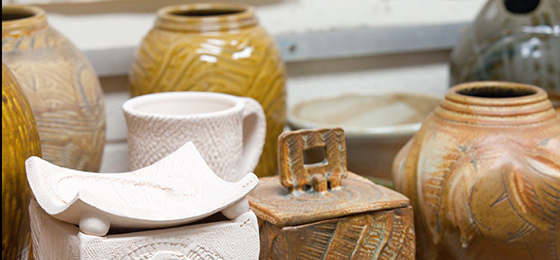Minor in Art History

Art History Minor
At Lamar University, the mission of art history in the Department of Art & Design is to better understand the meanings and purposes of the visual arts, including their historical development, their roles in society, and their relationships to other disciplines. Through the study of art history, our students learn to think critically and communicate clearly about art objects from various cultures and time periods. To that end, art history courses at Lamar develop the following skills: knowledge acquisition, understanding of various cultural traditions, critical thinking, analysis of visual and textual sources, research and writing skills, and visual literacy. These skills are essential to any future career in art, art education, graphic design or related fields.
The Minor in Art History is offered to non-majors for inclusion in degree programs outside of the Department of Art & Design by earning 18 hours of credit as defined in the catalog. Art & Design majors may earn a Minor in Art History with the addition of coursework beyond degree program requirements, totaling 18 hours of earned credit in art history.
An art history minor consists of ARTS 1303, ARTS 1304, and ARTS 2305 and three courses chosen from the following: ARTS 3337, ARTS 3338, ARTS 4328, ARTS 4337, ARTS 4338, ARTS 4348, ARTS 4368, ARTS 4380, ARTS 4388, and ARTS 4398. To qualify for a minor, a grade of no less than “C” must be obtained in each of the courses applied to the minor.
Minor in Art History Program Expectations
- Demonstrate an effective knowledge of visual vocabulary appropriate for careers in the visual arts.
- Recognize and understand major monuments, artists, methods, and theories, and be able to assess the qualities of works of art and architecture in their historical and cultural settings.
- Demonstrate an understanding of works of art and architecture from diverse genres and from a range of historical periods and geographical areas.
- Demonstrate familiarity with more than one artistic culture of a particular time and place. (Course selection should be broad rather than concentrated.)
- Develop a familiarity with various methods of art historical analysis.
- Demonstrate mastery of analytical skills such as observation and inductive reasoning in interpreting works of art both as formal structures and in relation to social and cultural contexts.
- Locate, interpret and analyze primary and secondary sources relevant to research questions.
- Develop the ability to think, speak, and write clearly and effectively about works of art.

